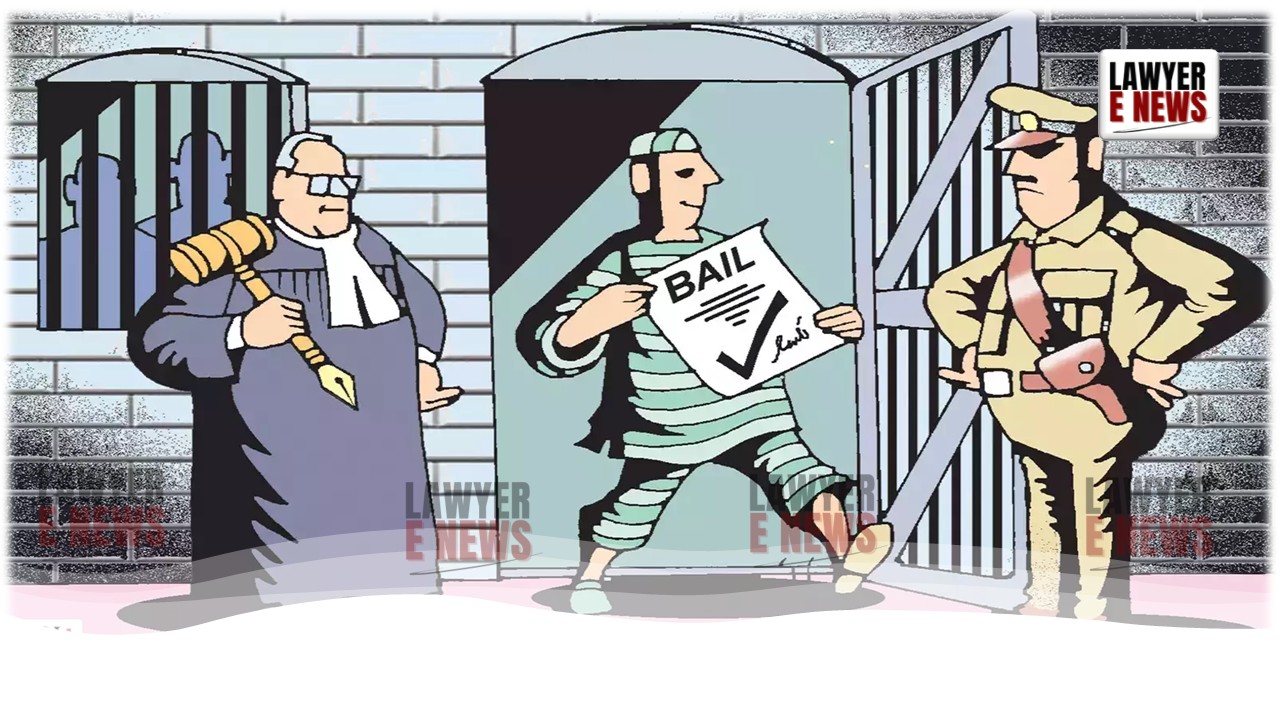-
by Admin
15 February 2026 2:36 AM



Kerala High Court, in Rajesh R. v. State of Kerala granted bail to the petitioner, the fourth accused in a murder case, under Section 483 of the Bharatiya Nagarik Suraksha Sanhita, 2023 (BNSS). Justice C.S. Dias emphasized that bail is the rule and jail is the exception, especially when the accused has been in custody for a prolonged period, the investigation is complete, and the charge sheet has been filed.
The petitioner, Rajesh R., was the fourth accused in Crime No. 1710/2023 of the Poojappura Police Station, Thiruvananthapuram. The case involved charges under multiple sections of the Indian Penal Code (IPC), including murder (Section 302 IPC) and other serious offenses such as unlawful assembly, rioting, and grievous hurt. The prosecution alleged that the petitioner, along with five other accused, had formed an unlawful assembly and attacked the de facto complainant and the deceased. The petitioner was charged with assaulting the deceased, who later succumbed to injuries inflicted by the first accused.
Rajesh R. was in judicial custody for 326 days, and although his previous bail applications were denied due to his criminal antecedents, the petitioner argued that he had been acquitted in one of the prior cases, and the remaining cases involved bailable offenses. He contended that the investigation was complete, the charge sheet had been filed, and all other co-accused had been granted bail.
The petitioner filed a bail application under Section 483 of the BNSS, arguing that:
He had been in judicial custody for a prolonged period.
The investigation was complete, and the charge sheet had been filed.
He had been acquitted in one of his previous cases, and the remaining cases involved only bailable offenses.
All other co-accused had been granted bail.
Bail and Criminal Antecedents
The prosecution opposed the bail application, citing the petitioner’s criminal history and alleging his involvement in multiple crimes. However, the Court referred to judicial precedents, particularly Maulana Mohammed Amir Rashadi v. State of U.P., which held that criminal antecedents alone are not a sufficient ground to deny bail.
"Merely because an accused has criminal antecedents, the same shall not be treated as a ground to deny bail," the Court noted, referring to previous Supreme Court rulings.
The Court acknowledged that the petitioner had been acquitted in one of the prior cases, and the remaining offenses were bailable. Therefore, the existence of prior criminal cases did not justify his continued incarceration.
Long Period of Judicial Custody
The petitioner had been in judicial custody for 326 days. The Court emphasized that pre-trial incarceration should not be used as a form of punishment and that the presumption of innocence must be upheld until proven guilty.
Referring to the Supreme Court’s ruling in Sanjay Chandra v. CBI, the Court stated: "The fundamental postulate of criminal jurisprudence is the presumption of innocence until a person is found guilty. Any imprisonment prior to conviction is to be considered punitive."
Completion of Investigation and Filing of Charge Sheet
The Court noted that the investigation in the case was complete, and the charge sheet had been filed on January 31, 2024. Given that the trial had not yet commenced and the forensic report was still pending, the Court found that further incarceration of the petitioner was unnecessary.
Justice C.S. Dias, in granting bail, reiterated the well-established legal principle that bail is the rule and jail is the exception. The Court took into account the fact that the petitioner had been in custody for nearly a year, the investigation was complete, and he had been acquitted in a prior case.
The Court also referred to the Supreme Court’s recent rulings in Manish Sisodia v. Directorate of Enforcement and Jalaluddin Khan v. Union of India, emphasizing that courts should not deny bail as a form of punishment and that pre-trial incarceration should not become a routine practice.
"Bail is not to be withheld as punishment. The principle that bail is the rule and jail is an exception is, at times, followed in breach. It is high time that the trial courts and the High Courts recognize the principle that ‘bail is the rule and jail is an exception,’" the Court stated, citing Manish Sisodia v. Directorate of Enforcement.
The Court granted bail to the petitioner with the following stringent conditions:
The petitioner was required to execute a bond of Rs. 1,00,000 with two solvent sureties.
He was directed to report to the Investigating Officer every third Saturday.
The petitioner was prohibited from tampering with evidence or influencing witnesses.
He was required to surrender his passport and was restricted from leaving the jurisdiction without prior permission.
Any violation of these conditions would result in cancellation of bail.
The Court concluded by reiterating the fundamental principle of criminal jurisprudence that bail is the rule and jail is the exception, especially when the accused has been in pre-trial custody for an extended period and the investigation is complete.
Date of Decision: October 21, 2024
